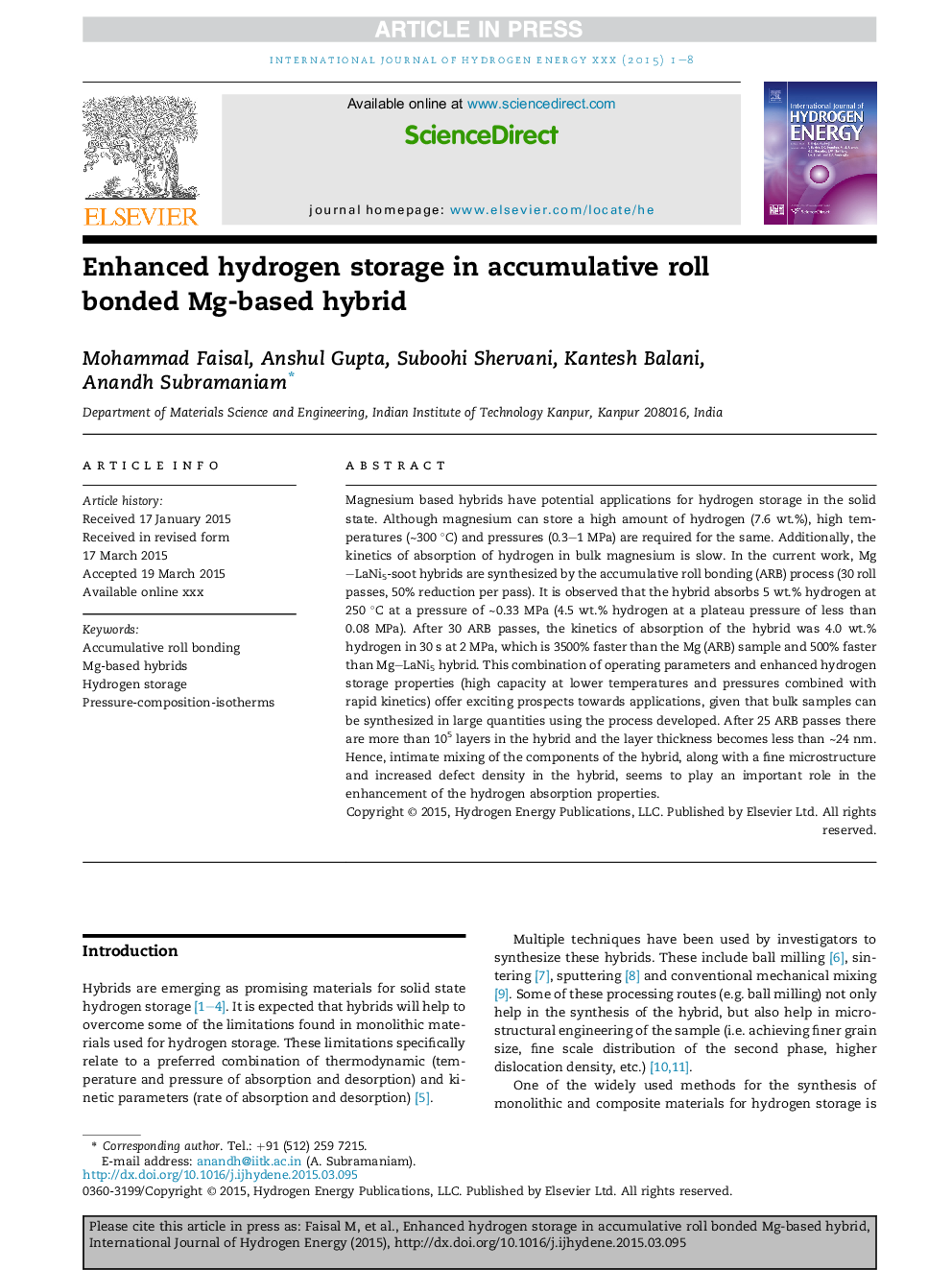| Article ID | Journal | Published Year | Pages | File Type |
|---|---|---|---|---|
| 7714080 | International Journal of Hydrogen Energy | 2015 | 8 Pages |
Abstract
Magnesium based hybrids have potential applications for hydrogen storage in the solid state. Although magnesium can store a high amount of hydrogen (7.6 wt.%), high temperatures (â¼300 °C) and pressures (0.3-1 MPa) are required for the same. Additionally, the kinetics of absorption of hydrogen in bulk magnesium is slow. In the current work, Mg-LaNi5-soot hybrids are synthesized by the accumulative roll bonding (ARB) process (30 roll passes, 50% reduction per pass). It is observed that the hybrid absorbs 5 wt.% hydrogen at 250 °C at a pressure of â¼0.33 MPa (4.5 wt.% hydrogen at a plateau pressure of less than 0.08 MPa). After 30 ARB passes, the kinetics of absorption of the hybrid was 4.0 wt.% hydrogen in 30 s at 2 MPa, which is 3500% faster than the Mg (ARB) sample and 500% faster than Mg-LaNi5 hybrid. This combination of operating parameters and enhanced hydrogen storage properties (high capacity at lower temperatures and pressures combined with rapid kinetics) offer exciting prospects towards applications, given that bulk samples can be synthesized in large quantities using the process developed. After 25 ARB passes there are more than 105 layers in the hybrid and the layer thickness becomes less than â¼24 nm. Hence, intimate mixing of the components of the hybrid, along with a fine microstructure and increased defect density in the hybrid, seems to play an important role in the enhancement of the hydrogen absorption properties.
Related Topics
Physical Sciences and Engineering
Chemistry
Electrochemistry
Authors
Mohammad Faisal, Anshul Gupta, Suboohi Shervani, Kantesh Balani, Anandh Subramaniam,
